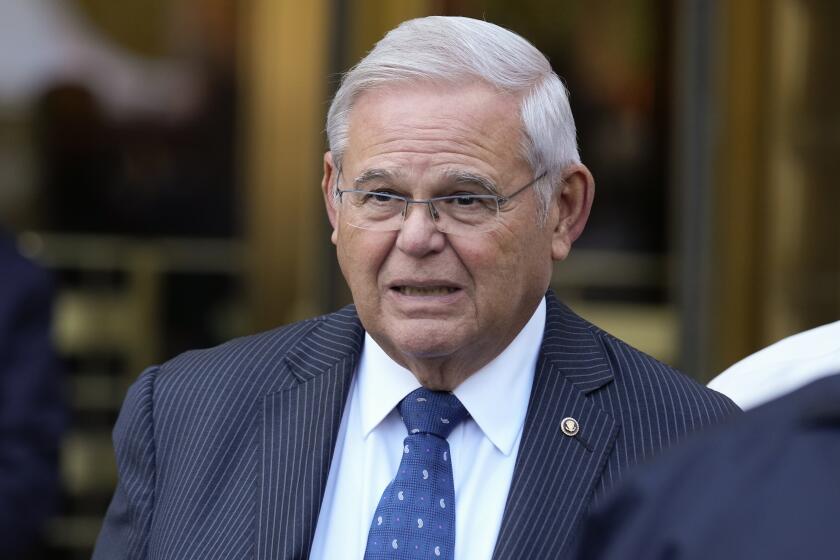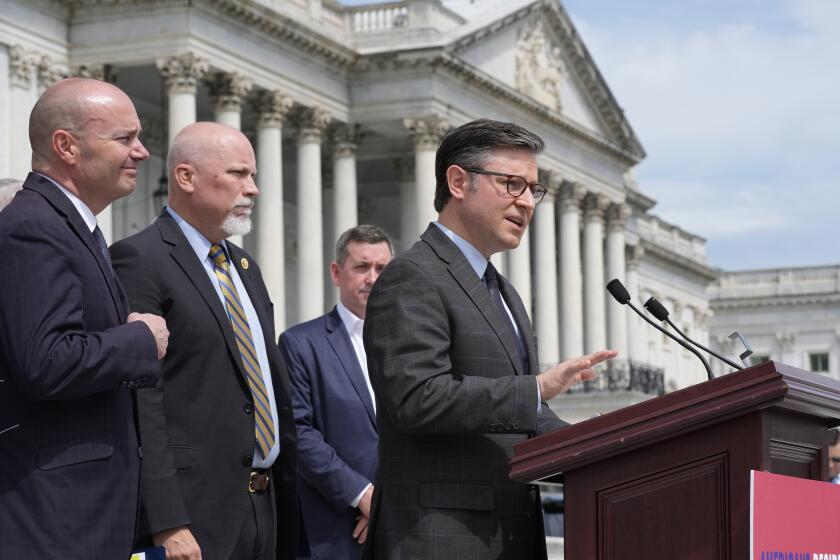Breyer Hearings: Not Just a Stroll : Approval likely, but there are issues to be probed
So likely is Stephen G. Breyer’s confirmation as an associate justice that his confirmation hearings, which begin today, have occasioned more talk of the U.S. Supreme Court’s current direction and evolving coalitions than of the nominee himself.
President Clinton’s nomination of Breyer, the chief judge of the U.S. Court of Appeals in Boston, has generated none of the impassioned opposition from the left or the right that characterized hearings for some other recent court nominees. Breyer is no Clarence Thomas, no Robert H. Bork. Unlike Justice Thomas, appointed by President Bush in 1991, Breyer has a top-drawer record as a jurist and legal scholar. Unlike Bork, defeated in 1987 after an intense partisan battle, Breyer is a careful pragmatist and a deliberate centrist.
The hearings before the Senate Judiciary Committee promise to be erudite and genteel--and confirmation by the committee and, indeed, the full Senate, close to a slam-dunk.
Notwithstanding Breyer’s strong bipartisan support, senators should question him closely about his financial investments. Breyer, who had invested as much as $500,000 in the insurance conglomerate Lloyds of London in the 1980s, reportedly ruled in several cases that may have affected the firm’s exposure to liability for the cleanup of Superfund sites.
Committee members would also be well-advised to push Breyer for his views on the fundamental and emotional principles that animate this nation’s system of laws and that frequently arise in Supreme Court cases--principles like due process, fairness, equality and privacy. Breyer has said he does not believe in “judicial activism,” hoping, perhaps, to deflect questions about his views on hot issues like racial quotas and abortion that have threatened previous nominees.
If confirmed as expected, Stephen Breyer promises to add more intellectual heft to the court’s coalescing, moderate majority. He is a match, in intellect and personal presence, for Justice Antonin Scalia. Breyer’s experience and knowledge could defuse some of the bitter disagreements now apparent among the members of the court.
Breyer has a formidable reputation for burrowing into the narrow, technical questions in cases before him. In focusing on such important questions as the legality of cost-benefit analysis in the drafting of regulations, he often has sought to light a path for his court, but in so doing, some argue, he also has sidestepped the important philosophical dilemmas that frequently lurk at the heart of appellate cases. The Supreme Court, of course, is far from just another appellate court. Its justices have a higher obligation: to lead the nation on the tough constitutional issues of the day by addressing them directly.
More to Read
Get the L.A. Times Politics newsletter
Deeply reported insights into legislation, politics and policy from Sacramento, Washington and beyond. In your inbox three times per week.
You may occasionally receive promotional content from the Los Angeles Times.






